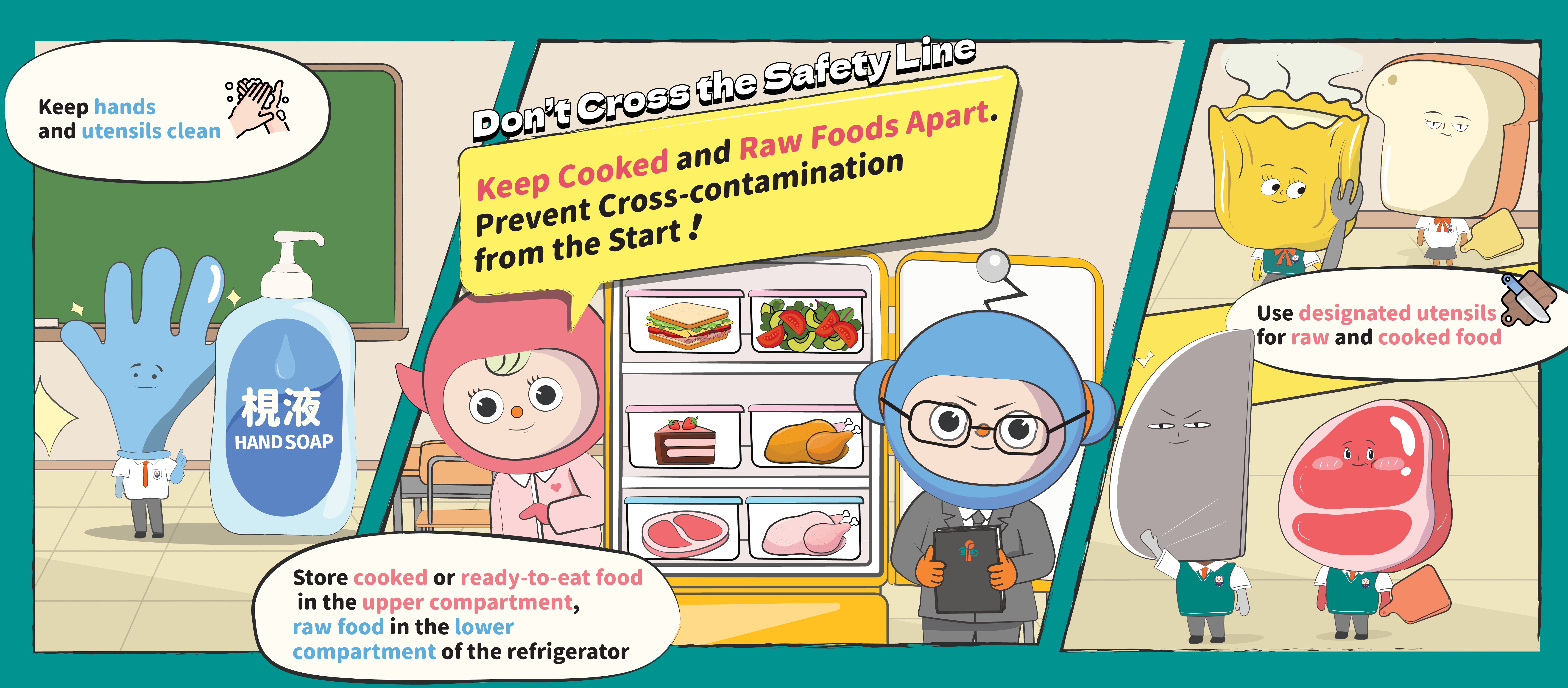Keep Cooked and Raw Food Apart, Prevent Cross-contamination from the Start!

Foodborne diseases, also known as food poisoning, incur significant health and economic costs worldwide. Many cases of foodborne disease occur due to food safety lapses in food preparation or handling either in food service establishments or at home. A major contributing factor is cross-contamination—when harmful microorganisms are transferred directly or indirectly from raw food to cooked or ready-to-eat food, often through contaminated hands, utensils, cutting boards, or food contact surfaces. Knowledgeable food handlers, including those who prepare food at home, at schools and at restaurants, can significantly reduce the risk of foodborne diseases.
In line with the World Health Organization's advice, the Centre for Food Safety (CFS) promotes the "Five Keys to Food Safety" (Five Keys) to reduce the risk of foodborne diseases within the local context, namely:
- Choose (Choose safe raw materials);
- Clean (Keep hands and utensils clean);
- Separate (Separate raw and cooked food);
- Cook (Cook thoroughly); and
- Safe Temperature (Keep food at safe temperature).
To echo World Food Safety Day of the United Nations on 7 June, the CFS is taking this chance to promote the importance of food safety to food businesses and the public in order to raise awareness of Five Keys as the best measure in preventing foodborne diseases. This year's campaign highlights the “Separate” key - emphasising the importance of preventing cross-contamination at all stages of food preparation in safeguarding food safety. By adopting good hygiene practices and following proper food handling procedures, such as storing and handling raw and cooked foods separately, using designated utensils and storage containers, and maintaining good personal and environmental hygiene, food handlers can significantly reduce the risk of foodborne diseases.
Relevant Links
- Websites
- Five Keys to Food Safety
- “Safe Food for All” thematic webpage
- “Safe Kitchen” thematic webpage for the food trade
- Videos
- FSD 2025 thematic video - Keep Cooked and Raw Food Apart, Prevent Cross-contamination from the Start!
- Safe Handling of Food (With multi-lingual closed captions)
- 7 Steps to Hand Washing (With multi-lingual closed captions)
- Five Keys to Food Safety (With multi-lingual closed captions)
- Educational Materials
- FSD 2025 thematic poster – Keep Cooked and Raw Foods Apart, Prevent Cross-contamination from the Start!
- Mini-poster – Hand Washing Guideline for Food Handlers
- Poster - Five Keys to Food Safety (In other Languages : Hindi, Indonesian, Nepali, Tagalog, Thai and Urdu.)
- Understanding Five Keys to Food Safety - Advice for Food Safety at Home (In other Languages : Hindi, Indonesian, Nepali, Tagalog, Thai and Urdu.)
- Public Talks
- Press Release
- Past Food Safety Days